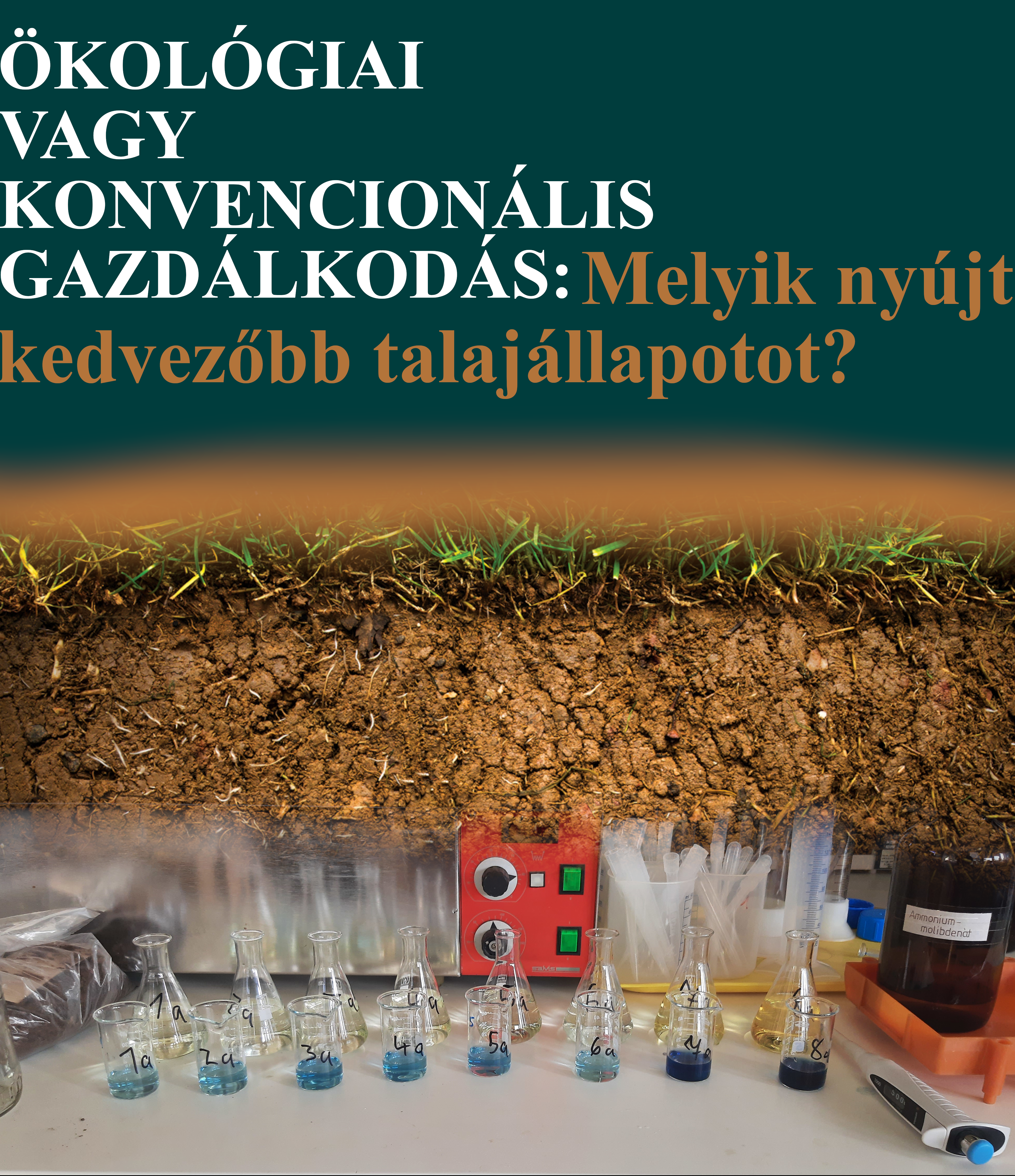
Secrets of the Soil - Thesis Summary
A university student has based his reserach on Zsámboki Biokert soil. You can read his findings - very interesting and very much worth a read! Many thanks for Barni to share this with us!
The Secrets of Soil: Why Organic Farming Wins in the Long Run?
Soil is the Foundation of our Future - Conclusions and Recommendations for Sustainable Farming
Soil not only provides a home for plant roots but also forms the basis for the functioning of the entire ecosystem. The future of agriculture, biodiversity conservation, and food security all depend on soil quality and health. According to recent research findings, organic farming is not only more sustainable but also leads to more fertile soil conditions compared to conventional farming methods.
Soil Quality vs. Soil Health – What’s the Difference?
Soil quality describes the physical, chemical, and biological characteristics of soil that determine its suitability for agricultural production, water retention, and carbon sequestration. Quality is relatively static and can be measured by factors such as humus content, lime content, or soil texture. In contrast, soil health is a more dynamic concept, referring to how effectively the soil functions as a living ecosystem – that is, whether it can support plant growth, maintain water and air quality, and resist degradation.
Why Is Organic Farming More Advantageous?
The measured parameters in the study – including the Antal Soil Health Index, humus content, nutrient concentration, and aggregate stability – all showed superior levels in organic farming. For example, the average humus content in organic samples was 4.45%, compared to 3.45% in conventional soils. This not only created better conditions for nutrient management but also boosted the activity of microorganisms in the soil.
Among the nutrients, nitrogen and phosphorus levels were twice as high in the organic samples, thanks to the beneficial effects of organic fertilization and composting. Potassium content showed greater variability, a characteristic of natural replenishment methods.
Aggregate stability – the structural strength of soil – was also better in organic farms. This indicator is crucial for erosion control, water retention, and long-term fertility.
Conventional Farming: Stable but Depleting
The advantage of conventional methods lies in their stability, but in the long term, they can lead to declining organic matter content and deteriorating nutrient availability. Soil health changes less dynamically in such systems, but this “stability” often comes at the cost of diminished soil life.
What Can We Do for a More Sustainable Future?
The research offered clear recommendations for future farming practices:
-
Promote organic methods: Use crop rotation, green manuring, organic fertilizers, and compost to increase organic matter in the soil.
-
Reduce tillage: In conventional systems, minimizing soil disturbance helps prevent loss of organic matter.
-
Soil protection and water conservation: Implement cover crops, mulching, and water retention techniques based on aggregate stability.
-
Precision farming: Use sensor-based soil testing, calibrated nutrient supplementation, and site-specific fertilization.
-
Regular soil monitoring: Track pH, humus content, and nutrient concentrations to support targeted interventions.
An Integrated Future in Service of the Soil
In light of these results, it is clear that organic farming ensures better long-term soil conditions, though it is not a one-size-fits-all solution. Due to its greater variability, strategic soil use is critical. Sustainable agriculture of the future will be most effective if it integrates the advantages of both systems – leveraging the nutrient-preserving benefits of organic methods alongside the control and precision of modern technologies.
Soil is the quiet yet essential engine of nature. By taking care of it, we ensure not only more abundant harvests but also a healthier environment.
